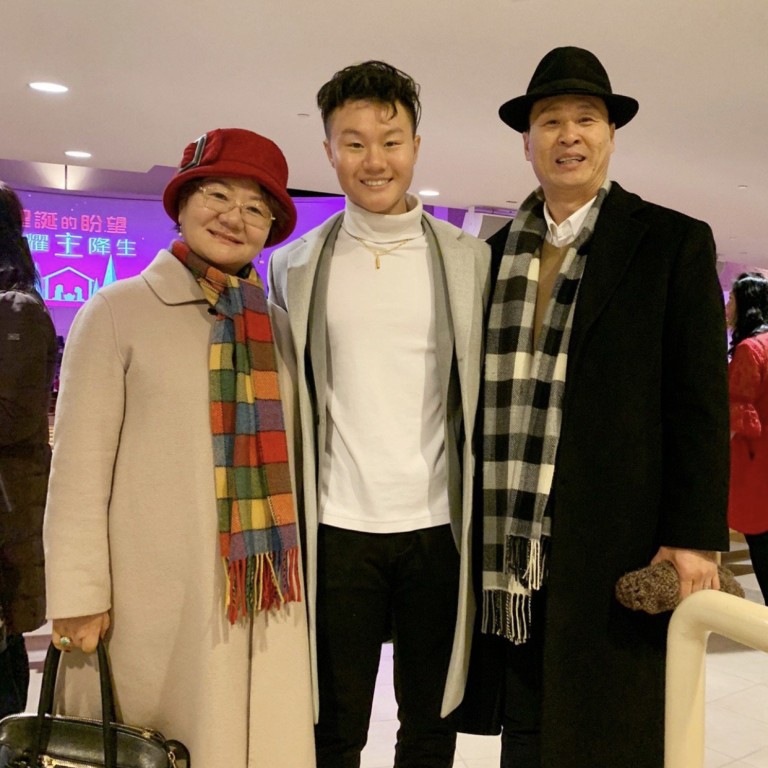
‘I was not able to find the words’: real-time translation app a Chinese-Canadian entrepreneur created to text with his parents finds wide audience
- Canadian-born entrepreneur Josh Gao’s limited written Chinese held back his ability to express himself. He co-created an app that translates texts in real time
- The app, Binko, keeps the original text – in whatever language – adds context and interprets slang properly. It’s had 10,000 downloads, and positive feedback
Although Canadian-born Chinese entrepreneur Josh Gao’s Mandarin is good enough to have a casual conversation with his parents, he struggles when it comes to texting them, resorting to simple sentences like asking if they have eaten yet and posting mostly pictures of food.
The 24-year-old felt his limited Chinese vocabulary hindered his ability to express his feelings to his parents.
“They’re getting past their sixties now, and there are some conversations I would really love to have with them before they pass away, like asking, ‘What is your relationship with that [death]?’ ‘How are you thinking about life right now?’ Things like that,” Gao says in a video interview from Toronto.
“And I wasn’t able to talk to them about it, I was not able to find the words.”
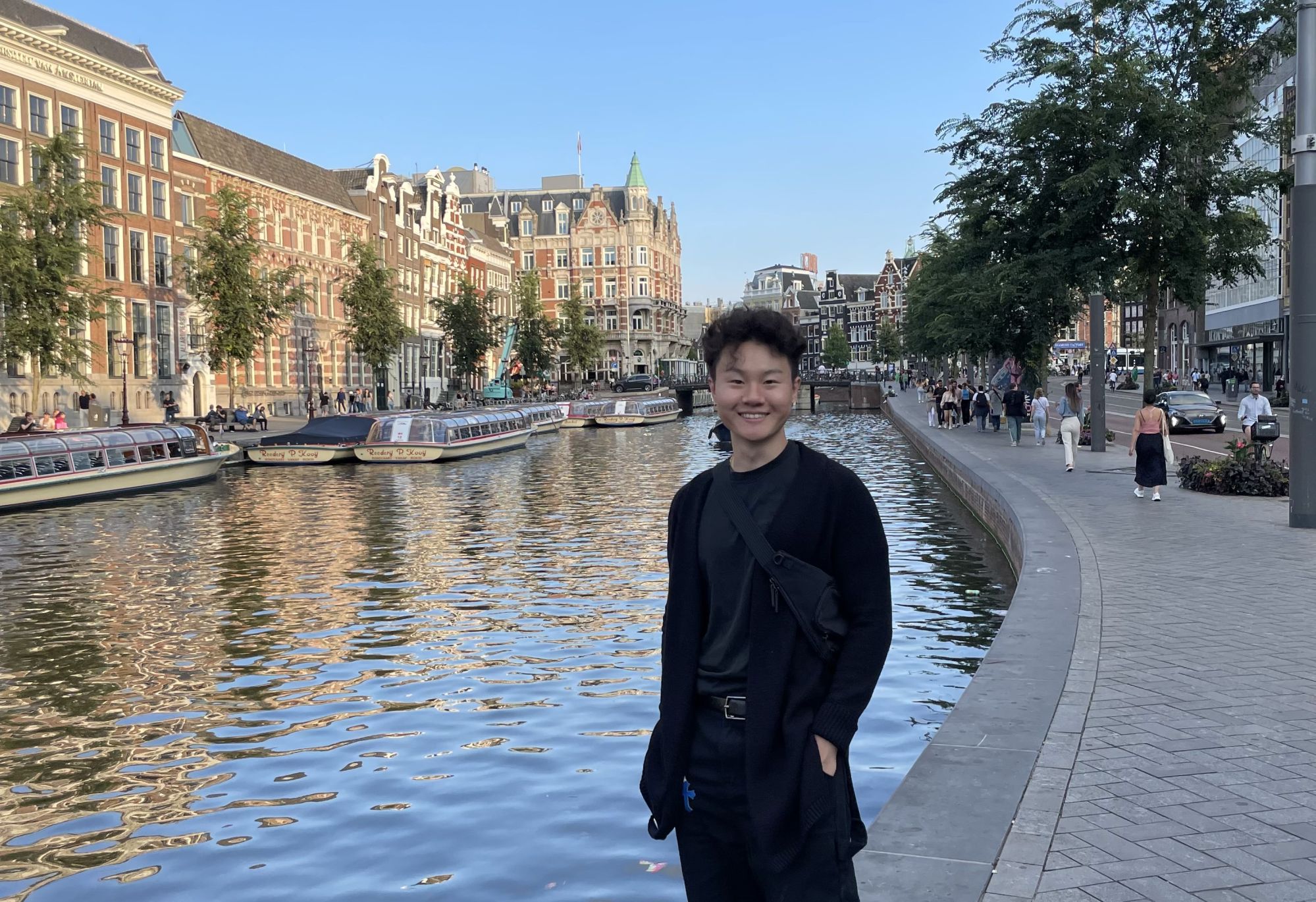
So he and his tech-savvy friends set to work creating a real-time translation app that could also interpret slang and colloquialisms in a natural way, unlike Google Translate which can be too literal, and WeChat, which he says is robotic.
They came up with Binko, where a user can type a message in English and it will be translated into Chinese (either simplified or traditional characters) for the intended receiver, together with the original English and added context for better understanding.
Apple’s coming health and wellness apps, from AI coach to mood tracker
Gao says Google Translate isn’t good, particularly when it comes to translating slang. For example, it translates “he kicked the bucket” into Mandarin as ta tile shuitong – literally he kicked the bucket, instead of he died. Binko gives a lengthy explanation and the proper Chinese translation, ta qushile (he passed away).
To promote the app, Gao posted a blurb on the Facebook community group Subtle Asian Traits that immediately got 10,000 likes.
One of them was from Jiaqi Liu, who was born in Taishan, Guangdong province, southern China. When she was three years old, she and her parents moved to Mexico City, where her father got a job working in a restaurant and eventually opened his own.
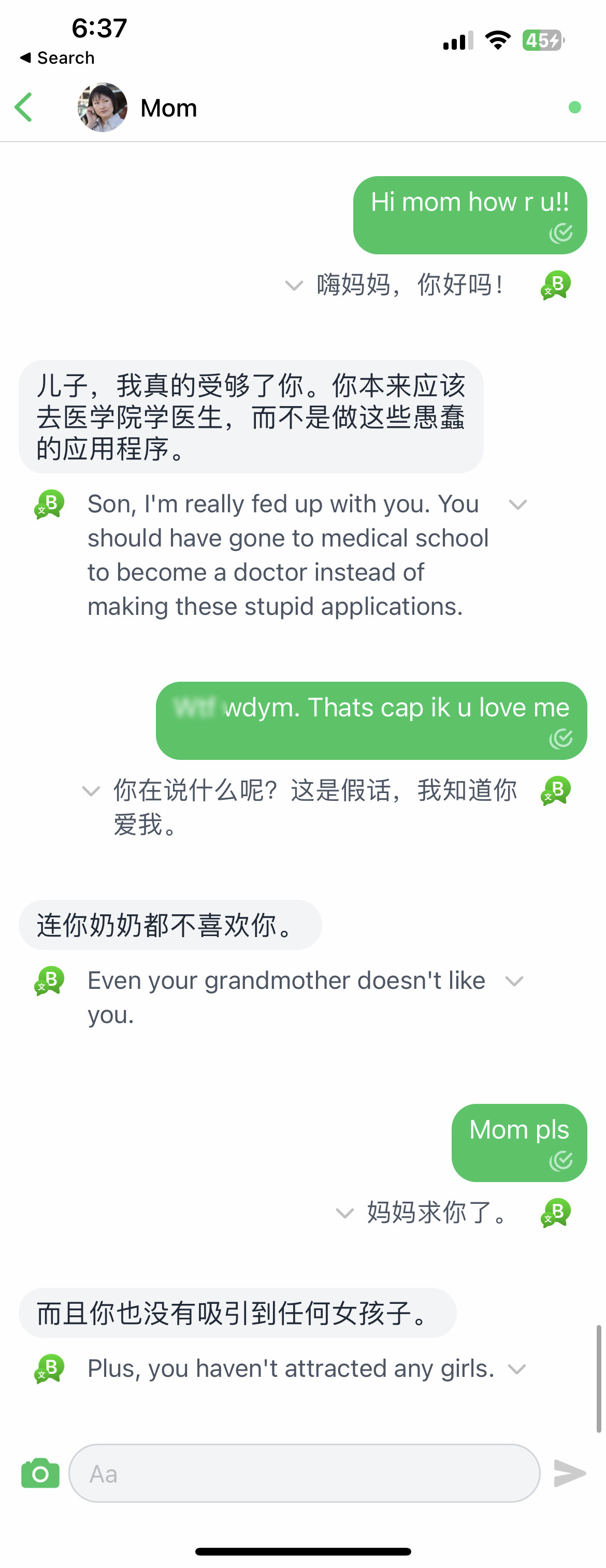
Liu, 22, moved to New Jersey in the United States to study and recently got her undergraduate degree in public relations, and will attend graduate school.
She keeps in touch with her parents in Mexico City through texting in Spanish, as her mother is more comfortable using it than English. Liu saw a post about Binko and decided to give it a try less than a month ago.
“We were both really shocked. My mom thought it was really fun to use it, she felt like it was a game that she was playing. And I was just amazed at the technology and how accurately it was describing what I wanted to say,” she recalls.
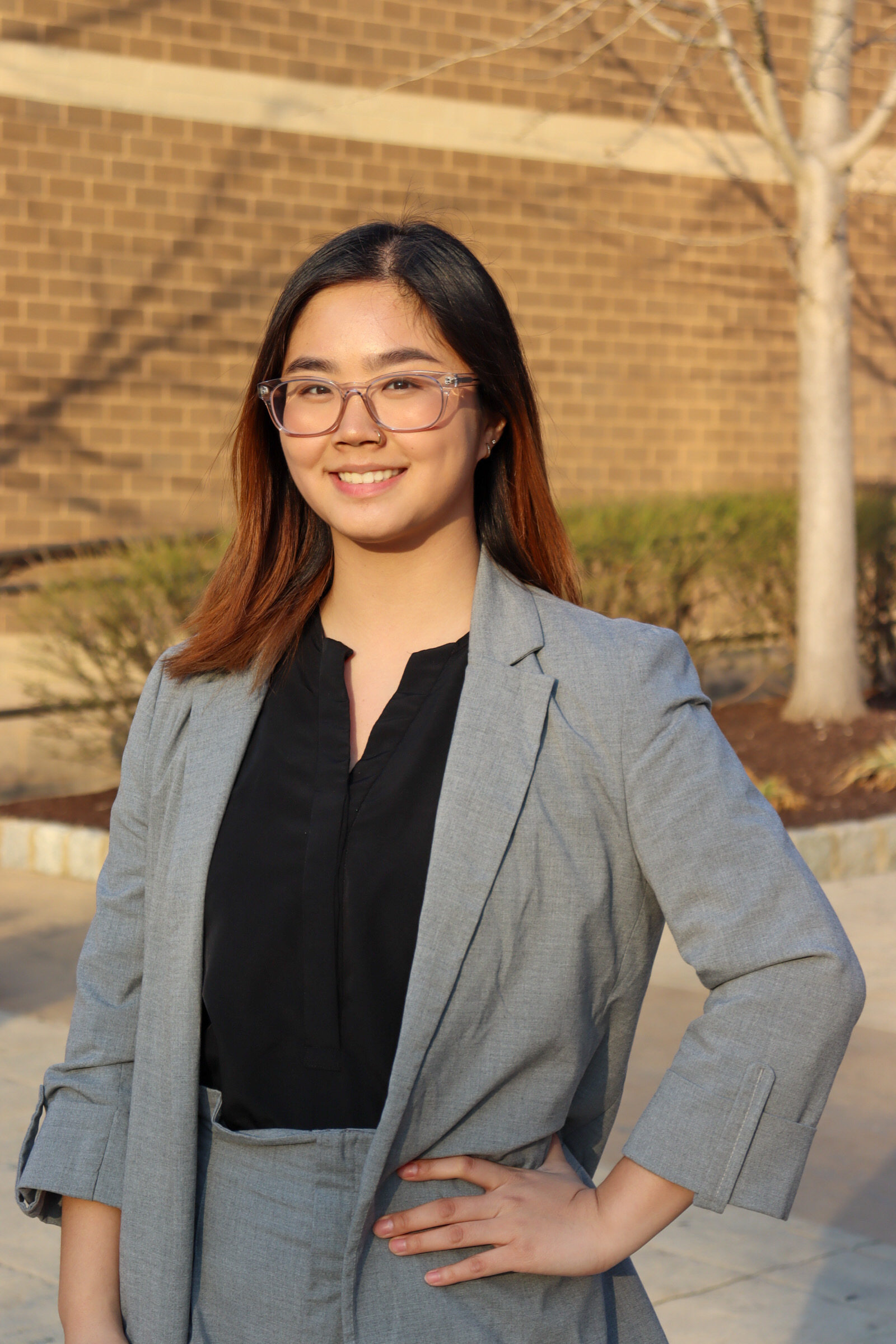
Previously Liu had to find the right words to explain something in context; now, with Binko that extra effort is immediately eliminated, and they can text more or less in real time.
“I feel like ever since I downloaded the app and the last few days, I’ve been able to explain things much faster. And even my mom has been able to do the same. I feel like I know her more now,” says Liu.
She particularly likes how fast the app is able to translate and understand the context of a message and translate it as such. For example, type “It was crazy today” and it will explain it was a stressful day or there was a lot happening.
The other upside is that Liu’s mother can learn more English from reading Liu’s original message in English that is translated into Chinese.
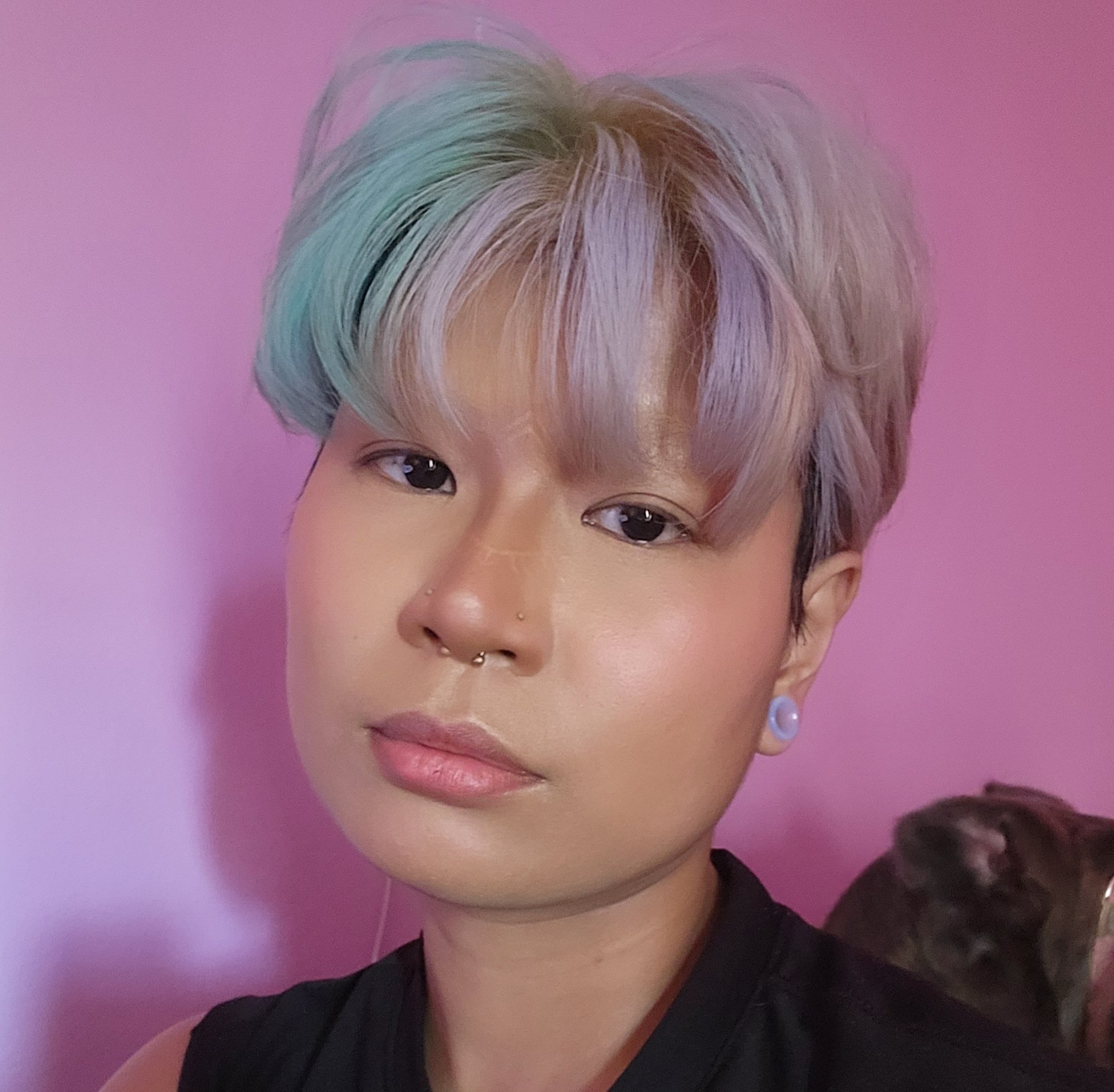
Another Binko fan is Arielle Felisse Banu, 30, who works as an optometrist’s assistant in Denver, Colorado.
When she saw Gao’s post on Facebook, Felisse Banu was very interested, not only as someone who used to study linguistics but also for her job, as she has to communicate with many people whose first language is not English.
While some bring their children to help translate, a child may not know medical terms.
“I also have noticed that if you download the appropriate keyboard, you can use speech to text and it works great. So it’s just been a lot of help, honestly,” says Felisse Banu, originally from Manila in the Philippines.
Previously she relied on another service on a tablet where real-time translation is facilitated by a real person, and two tablets are needed.
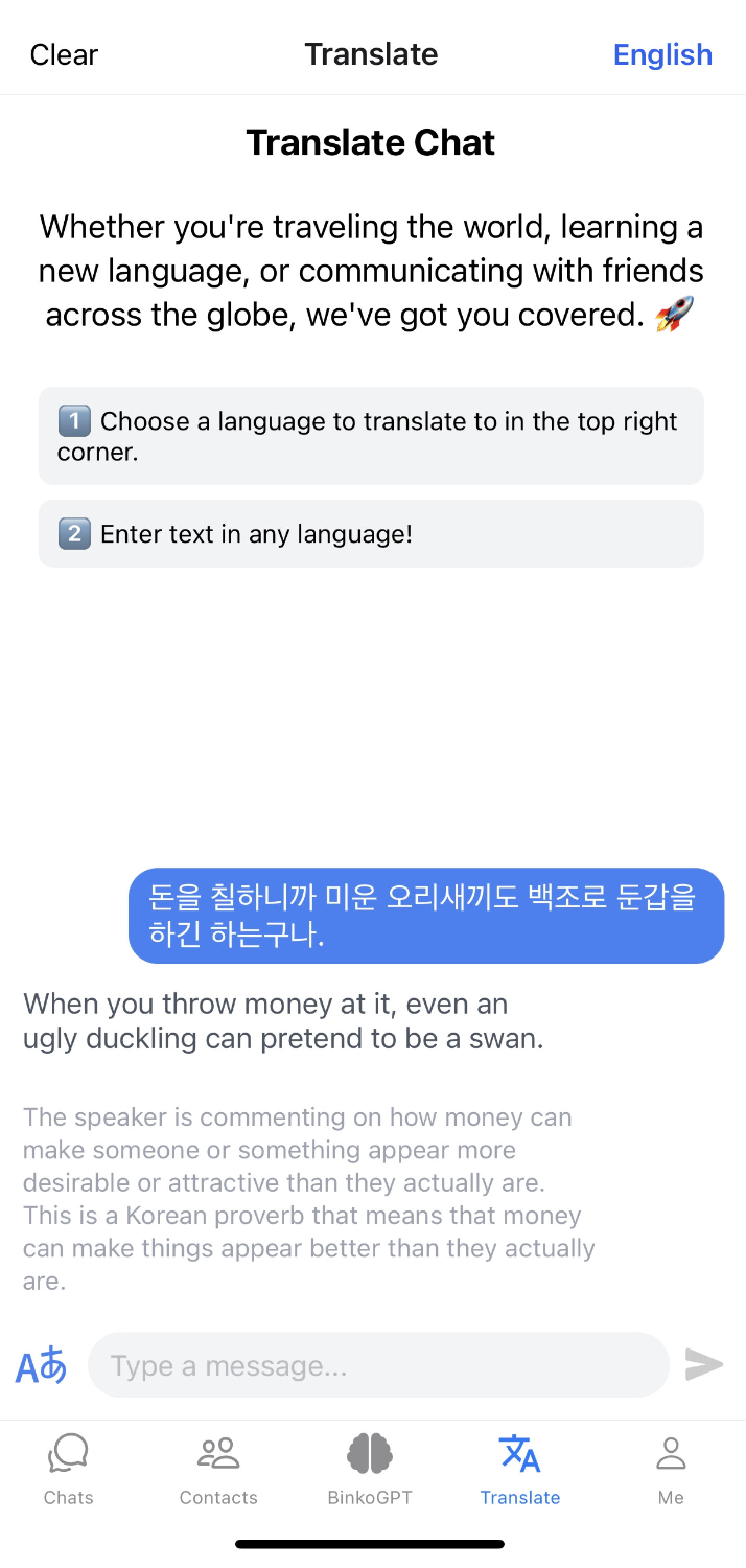
Felisse Banu has used the app for speakers of Spanish, Vietnamese, Ukrainian, and languages like Dari and Pashto in Afghanistan; Binko can also differentiate between the Spanish spoken in Spain and that used in Latin America, Felisse Banu says.
Liu and Felisse Banu have reached out to Gao telling them how much they like Binko and given him feedback. So far the app has been downloaded just over 10,000 times. And Gao has heard from many other Binko users.
“Some family doctors have reached out to us and they’ve said that some patients that came in, and they can’t speak the language, they actually just pulled up Binko and asked what they’re feeling. That’s been incredible,” he says.
I can’t imagine what the world will look like when there’s just no language barriers between everybody
“We’ve had people create group chats with friends from other countries and then relationships start to form. So people from Tokyo are actually getting into online relationships with people in Texas,” he says.
Another example is schools that are dealing with an influx of refugees and don’t have enough translators on hand.
“I can’t imagine what the world will look like when there’s just no language barriers between everybody. And along this trend, I think it’s going to happen one day,” he says with a chuckle. “That’s exciting.”

